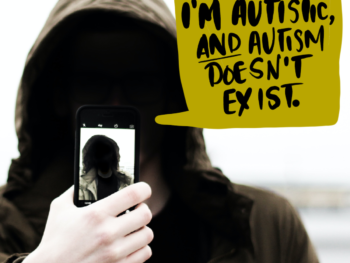
No, I’m not exaggerating. I really think working full time might have killed me (I’ll explain why in a sec).
This feels transgressive to admit. So much so that when I wrote the first draft of this essay, I spent at least one thousand words backpedaling, saying of course I could work full time if I had to. I kept saying that it was just my privilege as a wealthy lady talking when I say I couldn’t work full time! No actual difficulty with a forty-hour-work week, just my preciousness!
But here is the truth: I really don’t think I could, at least not without some pretty awful consequences. And I think I need to get over my embarrassment in admitting that.
How I discovered working full time did not work
So: my work history. At twenty-six, my company laid me off from a full-time position and offered a contract position that only provided about ten hours a week of work. And I was very unhappy about my layoff until my second day home, when I realized that I had never felt so peaceful, rested and unstressed in my entire life.
Here’s why. My family went through a lot of chaos before I turned six, and after that, I had a stunningly busy schedule that included an actual job until I was a thirteen (I was a working child actor), honors classes, and very time-consuming extracurriculars, like ballet classes five days a week plus rehearsals on weekends. So yes, my childhood was really stressful.
Before I got laid off, I could not remember a time (except, perhaps a few summers) that I had not been frantically busy. And suddenly…I was not.
It felt eerily normal. As if I had lived underwater my entire life, and only now came onto dry land and realized I was supposed to breathe air.
I did not know I could feel this much better, all the time. I apologetically mentioned this feeling to my husband, and he shrugged, and told me to stay home for a while. We did fine on his salary, and he didn’t mind.
I felt terribly, terribly guilty, but I’ve never had another formal job.
Parenting Is a Real Job…but It’s Not the Same as a Full-Time Job
I’ve been a full-time caregiver for most of the rest of those years, and also homeschooled my kids, so it’s not like I haven’t been working. Full-time caregiving is hard work that is more than full time. Even for me, the first few years of parenting was far more stressful than working full-time.
But after those first few overwhelming years, parenting felt a lot more doable to me than going to an office for eight hours every weekday. This is because I feel dread every time I have to pay close attention to a clock, leave my house, or interact people I don’t know well.
Surprise! Holding down a job requires all of those things—even remote work requires way more of it than feels manageable to me. I thought seriously about getting a job a year ago, and (no joke) started getting nightmares.
Now that I’ve gotten diagnosed with autism, that dread makes a lot more sense to me. It has forced me to be more honest with myself about how uncomfortable those things feel.
All this to say: being a full-time caregiver is a lot of work, but it is different work, and far, far easier for me personally to manage than a forty-hour-a-week job.
Having Time to Heal Saved My Life
Here’s why I think working full-time might have killed me. It turns out my stressful childhood is quantifiable. It scores a six on a scale of ten.
The scale comes from an extensive study of childhood trauma done by Kaiser Permanente from 1995-1997. They developed a series of questions about what they called “adverse childhood experiences,” now known as “ACES.” They’ve since distilled the initial survey into a ten-question assessment that asks about neglect, physical, emotional, and sexual abuse, family members’ incarceration, drug abuse, mental illness, and poverty.
The higher your score (up to ten), the more you’re likely to suffer from very serious long-term health problems.
My ACES score is a 6. People who score that high die twenty years earlier than expected. They’re also far more likely to suffer from a variety of serious mental and medical problems.
But—against the odds—I’m healthy. I’m mentally well. I’m happy.
I doubt the above would be as true if I had been working full time all these years. I would not have had the bandwidth to heal. I would not have had the bandwidth to parent differently, or work on my marriage, or avoid untreated mental or physical illness. I would be a lot sicker, in a lot of ways.
It took all the energy I had to heal after the trauma I went through. Not-working gave me that time and energy. I could see my therapist at 2 pm without any stress. I could take a nap every day if I needed it. I did not have to set an alarm clock. I could go at a pace that matched mine and my childrens’ energy levels.
Who would I be if I had not had that time?
When I add together my autism, plus my ACES score, plus the stress of working full time, I imagine this very plausible alternate reality: me with a chronic illness, an out-of-control anxiety disorder, a divorce, and possibly parenting my kids abusively.
It makes me shiver.
Full-time Work Does Not Actually Work for Everybody
It feels embarrassing to admit that my autism and truama limits my ability to work full time, but less embarrassing than it would have a few years ago. That’s because of a conversation I had with writer Elizabeth Hinnant back in 2019.
Hinnant has postural tachycardia syndrome (POTS) and myalgic encephalomyelitis (ME), the latter sometimes unhelpfully called Chronic Fatigue Syndrome. She does have a job, but her body can only handle about five or ten hours of work a week.
The funny thing is, Hinnant feels much healthier as a disabled person than she did while able-bodied. That’s because before she got sick, she assumed she had infinite energy and resources—which isn’t true at all.
“We act as though what it means to be able-bodied is, ‘I can push myself infinitely and be fine.’” Hinnant said. “That I can do that without harm, or minimizing my own needs, or injuring my own self-trust. That I could push myself without negative consequences.”
Her illness revealed that was a lie. And living differently quickly revealed other lies—really, really unkind ones.
She said, “The biggest revelation for me was that I realized I can’t base my worth on my productivity any more. Pretty quickly [after I got sick], I had to decide if those standards were worth keeping. Because if they don’t apply to everybody, then the moment I said “Oh, I worked ten hours this week, I’m a good person,” then someone who could only work five hours, [which sometimes was me]—I’m saying they’re no longer a good person. I had to get either rid of those standards because there was no way to live up to them.”
Look, Hinnant cautioned me against glamorizing her experience. I know other people who live with chronic pain—I myself experienced it for nearly a year—and it’s scary, isolating, and, well, painful. I don’t want to portray her as footloose and fancy free, or unaffected by the severe limitations she lives with.
Still, as Hinnant pointed out, “You can live a perfectly happy life and only work five to ten hours a week.” It’s worth mentioning that there have also been many surveys done of disabled people’s quality of life, and after controlling for stuff like poverty or pain, their life satisfaction is not measurably different than the able-bodied—sometimes, it’s even higher.
Disability is not the real sickness, in other words. The real sickness is the idea that we need to be doing, producing, working in order to justify our existence.
It’s been four years, and I still can’t get Hinnant’s testimony out of my head. And now that I realize I’ve had a serious developmental disability all these years, one that indeed made full time work incredibly stressful—my fascination makes a lot more sense.
But it isn’t just stress I avoided by staying home. I think I avoided shortening my life.
And if that’s true for me, a wealthy white woman with good access to health care, how much truer is that of people of color, and/or those who are poor?
Trauma affects our physical bodies in tangible, terrible ways. And our system gives people no time to heal from it. We assume survivors can just bounce back, or act as if nothing happened. That to take time off is to be lazy, or entitled, or precious.
Knowing the toll chronic stress puts on human beings leaves me no choice but to question our assumptions about how much work adults can do.
Because a LOT of people in our society have high ACES scores, especially those who are most marginalized. They are called lazy or entitled if they struggle to hold down jobs. And I am done pretending I’m somehow different than they are.
I think we should structure our society to share, so that everyone has spare hours to avoid dying young from trauma. And the first step to getting there is for each of us to start questioning the link between our work and our self-worth. Then, we need to begin radically, lovingly, transgressively, living a different way. And we need to live that way loudly to make space for the simple truth a forty-hour work week is not always doable.
To wit: I’d love it if you’d share this post. Because after COVID? This conversation is urgent.
Photo by Mathew MacQuarrie on Unsplash


